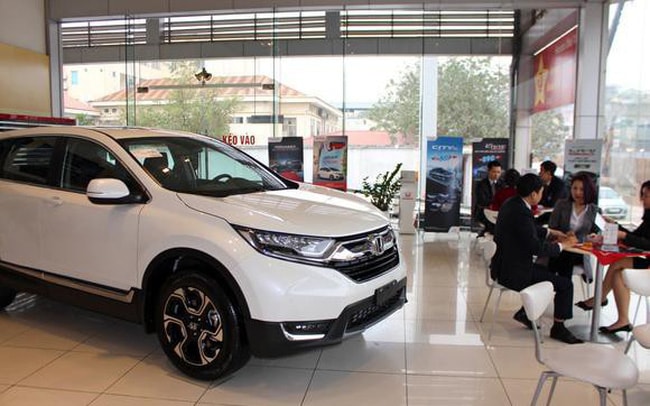Toyota and Honda temporarily suspend car exports to Vietnam
Toyota Motor and Honda Motor have temporarily suspended exports to Vietnam since the beginning of this year due to Decree 116 tightening inspections on imported cars.
Toyota said it has temporarily suspended all production for export to the Vietnamese market. The Japanese automaker has an assembly plant in Vietnam but still imports about 1,000 vehicles a month from Thailand, Indonesia and Japan to meet about one-fifth of the number of vehicles sold in the Vietnamese market. Imported models include the Hilux and Yaris pickup trucks, the Fortuner sports car and the Lexus luxury car.
Decree 116 took effect immediately after Vietnam reduced import tax on automobiles imported from ASEAN countries from 30% to 0% from January 1, 2018. Vietnam's implementation of tax rate reduction is 2 years later than other countries in the ASEAN bloc.
"The Vietnamese market declined significantly last year because customers hesitated to buy cars while waiting for import taxes to be reduced at the end of 2017," said Toyota Thailand President Michinobu Sugata.
 |
In fact, sales in Vietnam from January to October last year fell 10% to 245,000 units. "We expected the market to grow strongly in 2018, but due to non-tariff barriers imposed by the Vietnamese government, we cannot export to Vietnam anymore," the chairman said.
Decree 116, published in October 2017, requires emissions and safety testing for all imported vehicle batches. Previously, only the first batch had to undergo testing.
The Japanese Chamber of Commerce and Industry in Vietnam said an emissions test could take two months and cost up to $10,000. “It’s a huge waste of both time and money,” the organization said.
Decree 116 also requires all vehicle models to have a Type Approval Certificate, issued by the competent authority of the exporting country. This is a certificate that the imported vehicle meets the standards of the importing country and is issued by competent organizations in the exporting country.
Since Decree 116 was announced last October, governments from many countries such as Japan, Thailand and the United States have expressed concerns that they will find it difficult to export cars to Vietnam.
Previously, regarding some contents of the Decree, the Vietnam Automobile Manufacturers Association (VAMA) sent a petition to the authorities and said that the new problems could cause difficulties for businesses, cost more, and affect consumers./.
